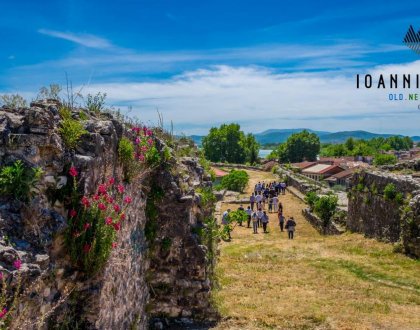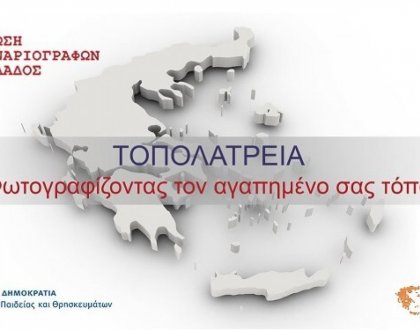Register of Producers for the strengthening of Gastronomic Tourism in Ioannina
Initiatives | 25 - 05 - 2022
Gastronomy for a destination is an integral part of the experience that the visitor develops. The raw materials, the way of production and preparation of recipes as well as the way of serving and the circumstances are an element of culture, tradition and customs for each place.
Epirus cuisine
Epirus cuisine is inextricably linked to the way of life of the people of the mountainous and semi-mountainous region as well as the influences of different cultures that passed through the region. The culture from antiquity until the liberation and integration of Epirus into the Greek national body, the influences of the conquerors (Romans, Byzantines, Franks, Ottomans), the nomadic immigrant races (Sarakatsans, Vlachs, Slavs, Arvanites), the climatic conditions, combined with the geological position and local habits, they shaped the gastronomic physiognomy of the region.
The cuisine of Epirus is wide and varied, as it is based on goods from the primary sector, such as dairy products (butter, milk, cheese) from local gardens, farms and mountainous areas (vegetables, fruits, herbs, flour), local meat but also river and lake fish. The most important center of expression and acquaintance with the special characteristics of continental cuisine is the city of Ioannina. Wide variety of dining areas, many points of sale and significant incoming tourist stream in the city form an important first platform for communicating local products with a wide, international, audience.
The products produced have a special reputation and place in Greek cuisine, with some having obtained P.O.P and P.G.E certification, such as Metsovone cheese, a P.O.P product, which is only produced in the Ioannina area, FETA cheeses such as kefalograviera, galotiri, PDO products, which are produced in all four Regional Units of Epirus and PDO Zitsa wines and PGI wines produced in the Municipality of Zitsa. Epirus consistently holds the best reputation for their quality in trachanas and noodles.
Wine and spirits are a separate category. Debina variety is a white variety of Epirus grown in the area. The white wines of Zitsa and the red wines of Metsovo are known worldwide. Other varieties are Cabernet Sauvignon, Cabernet Franc, Merlot, Traminer, Cardonnay and the unique Vlach. Furthermore, tsipouro produced in the area is also distinguished for its excellent distillate quality.
Handmade pies are inextricably linked to local gastronomy. The tradition of the pie begins with the nomadic tribes of the Sarakatsans and the Vlachs. The method of preparation and their ingredients testify to their purpose and time. Other recipes that feature meat and noodles as the main ingredients are hare stew, wild boar, boiled goat, pork with variations, but also eel, frog legs and smoked trout. Baklava, the traditional sweet of Ioannina, with the special "Gianniotiko", is known throughout Greece.
Finally, in traditional Epirotian cooking there were special utensils, many of which are still used today such as the tavas (pan with a lid), gastra and sagania (large pans for cooking on the fireplace).
Gastronomy in the Municipality of Ioannina
Considering all the above, one can understand that there are few distinct culinary elements in the different EPs of Epirus. The cuisine of Epirus consists of a set of products that are mainly produced outside the urban area of the Municipality of Ioannina, with visitors/tourists looking for the source of origin and many times choosing to visit it. Ioannina is the metropolitan municipality, the point where the visitor to the region comes into direct contact with the flavors and dishes resulting from the use of continental local products.
The natural landscape of the city with a dominant wet element (Lake Pamvotida) and the multicultural identity of the city (e.g. the Roman influence is also strong) have shaped recipes and habits that define the culinary culture of the destination. The visitor, beyond the experience of the activities, the cultural tour and the experience with the Lake, connects and should connect even more the tourist experience with the flavors and aromas from the recipes that the local restaurants and hotels can offer.
For this reason, it is deemed necessary to investigate and record the raw materials that frame the culinary culture of the city of Ioannina, which is also the seat of most of the hotels and can be defined by products associated with the mountainous settlements of the area, the lake, as well as with customs - customs that were formed by the various cultures that passed through the city over the years.
Invitation to Registration
Municipality of Ioannina, and in particular the Vice-Mayors of Primary Sector and Tourism, invite the local producers of Ioannina to be included in the update of the list of producers, with the aim of creating a useful tool with information and contact details aimed at enhancing synergiesbetween the primary sector, catering, hotels and wider tourism activity.











